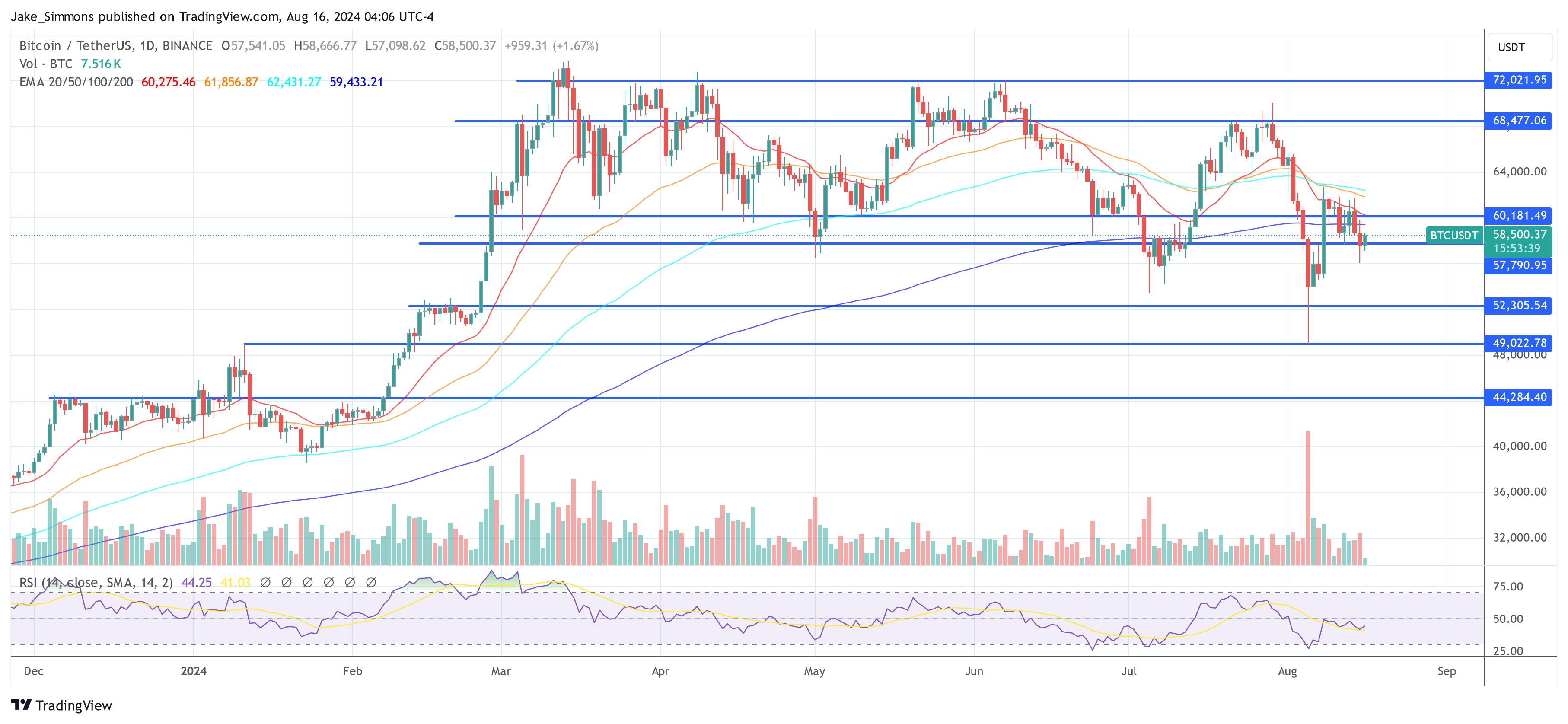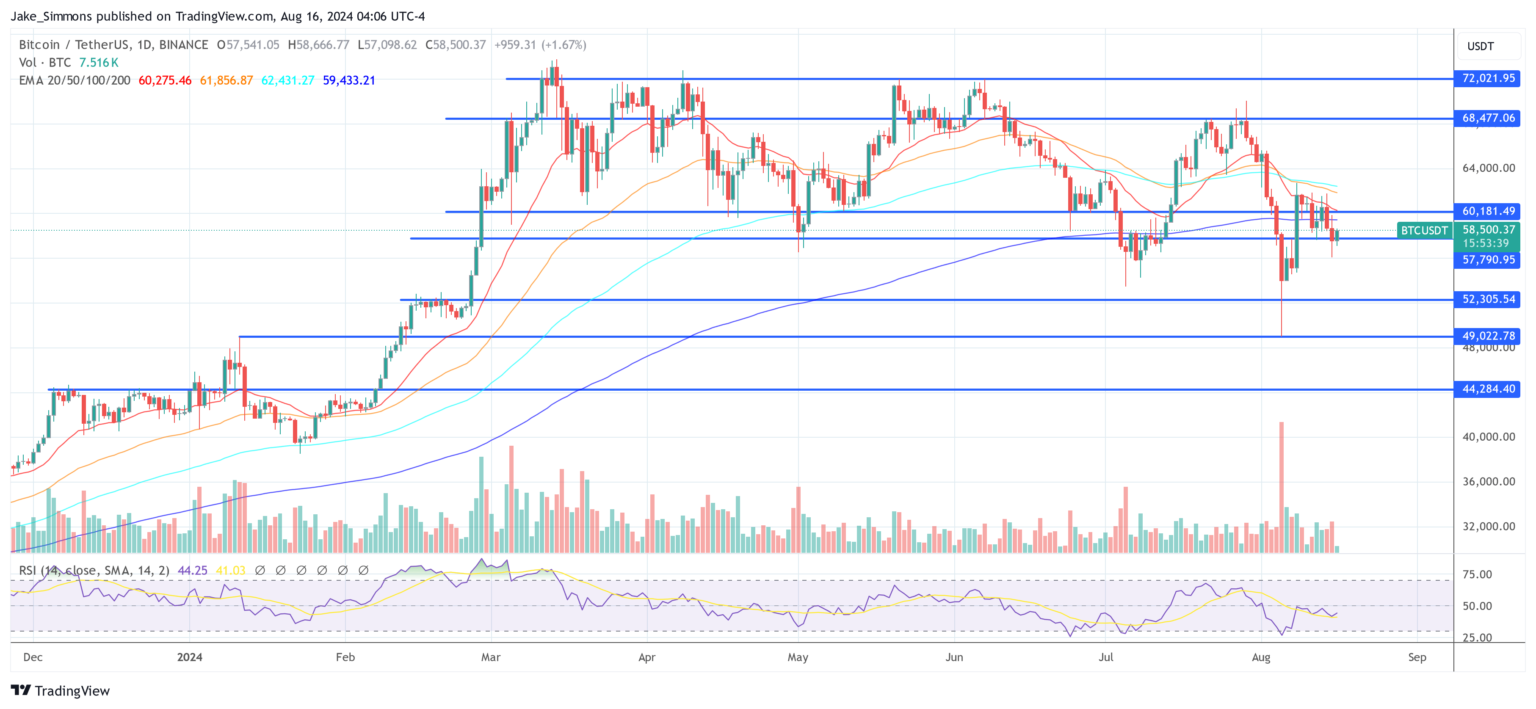In the latest episode of the podcast “The Bitcoin Layer,” Daniel Batten, a recognized advocate for Bitcoin, discussed the potential impact of sovereign wealth funds (SWFs) on the Bitcoin price, predicting a rise to over $148,000 per BTC if these funds decided to take even a invest a minimum fraction of their money. their belongings. With $35.7 trillion under management between SWFs and public pension funds, a 1% allocation could have a significant impact on Bitcoin’s valuation.
Batten’s analysis is based on the sheer size of assets managed by SWFs and public pension funds, noting that even a fractional investment compared to their total assets could have a profound impact on the market. He explained: “If there was a 1% implementation in Bitcoin, based on the current ratio of dollars invested to market cap increase, we can calculate that this would lift Bitcoin’s price to over $148,000.”
Why Sovereign Funds Are Likely to Buy Bitcoin
According to Batten, the main obstacle is not a lack of interest, but a lack of permissible investment frameworks within these funds, especially with regard to ESG (Environmental, Social and Governance) criteria. “All sovereign wealth funds want to invest in Bitcoin. It is not for want of want,” Batten quoted Kevin O’Leary, highlighting that these funds are currently restricted by their ESG investment committees. These committees have yet to be convinced of Bitcoin’s environmental performance, which Batten says is now significantly more positive than the general perception, marred by outdated information.
Related reading
Batten suggested that the ESG criteria, which are a key factor in investment decisions for SWFs, are based on data that is at least three years old and no longer accurately reflects the current state of Bitcoin mining technology and its impact on the environment. “There is a huge knowledge asymmetry where the knowledge we now have about Bitcoin and its environmental benefits is now so different from what the ESG investment committees of sovereign wealth funds believe about Bitcoin,” he stated.
In response to these challenges, Batten has not only conducted research, but also engaged directly with SWFs, with the aim of informing and keeping their ESG committees abreast of the latest developments in Bitcoin’s impact on the environment. His goal is to realign outdated perceptions with current realities, removing barriers to their investment in Bitcoin.
In support of his theory, Batten pointed to recent investments by state pension plans in the US, such as those of Wisconsin and Michigan, which, despite their small scale, had a significant media impact and positively influenced market perceptions. “Wisconsin has invested […] a total via grayscale mainly. I believe their current position is about $160 million; that’s nothing compared to their total assets under management […] however, even that very small allocation […] had a major impact on the Bitcoin price that day,” Batten noted.
Related reading
Overall, Batten believes that SWFs can not only contribute to Bitcoin’s bull run, but also help stabilize and legitimize the market to a broader, more conservative investing audience. Furthermore, he believes that WSFs are more likely to invest in Bitcoin than another major nation state or major company like MicroStrategy.
He concluded: “Yes, there is a lockdown and it takes efforts to get through it and it is difficult, but it is not nearly as difficult in my opinion as convincing a nation state to adopt Bitcoin. So this is an area where, although it is difficult, it is not as difficult as other areas. It is also true that there is only one blocker, and not a whole series, and in most cases that is the ESG investment committee.”
At the time of writing, BTC was trading at $58,500.

Featured image created with DALL.E, chart from TradingView.com

